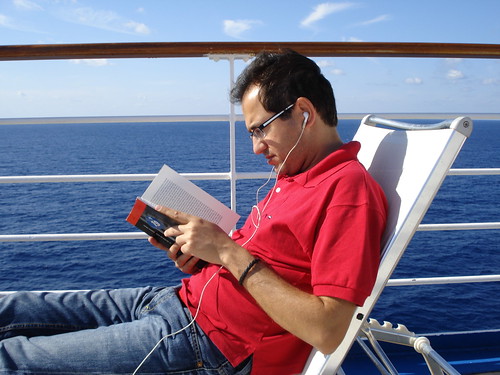If you are learning Spanish, I’m sure you have been given the advice to read in Spanish. I know I have told you to do it. Reading news, stories, magazines, and books in Spanish is an excellent way to keep your Spanish sharp and/or learn new words. Of course, it can also be incredibly frustrating and take you 3 times as long as it does to read in English. So how can you read and learn without going crazy?
1. Start small
Don’t try to read the Odyssey in Spanish. Pick simple things. Start with short news articles or blog posts, then move onto short stories and eventually novels. Even better, read childrens’ books and comics. Both give you the extra benefit of beginning to learn about the culture of your target language. If you jump right in with something super difficult, you are not likely to keep up with regular reading. Even those wacky gossip newspapers are worth reading. Not only do you practice, but you pick up a lot of slang, and you will be full of funny local culture rumors to amuse your friends.
2. Go for overall meaning
You do not need to understand every single word, phrase, nuance, etc. You need to understand the basic idea of what you are reading. Don’t let yourself get stuck on things you don’t understand right away. If it’s a phrase you think might be worth knowing, mark it and come back to it later. Do not let it mess up the flow of your reading.

3. Save the dictionary for the end
Unless the word is completely necessary to the meaning of the sentence, just mark it and look it up later. If you run for the dictionary every few words, you’re going to get lost. You are likely to lose sense of what is going on in the story/article. It’s like when you first started learning and had to read aloud in school. You were so busy trying to make sure you pronounced it correctly, you didn’t actually absorb any of the meaning. That’s what constant dictionary use will do – break your concentration and ability to absorb facts.
4. Work up to reading aloud
Like I just mentioned, reading aloud can actually mess you up at first because you are so focused on the pronunciation. However, once you get good enough to be able to handle pronunciation and comprehension at once, you should practice. When you read, you might skim over words without even meaning too. Not only will this make you miss valuable vocabulary words, it might lead to that phenomenon where you finish a page and have no idea what events transpired.
Happy reading!
Check out these other articles about the Spanish Language.
Featured photo credit: Leyendo por el Mediterraneo by luisrull